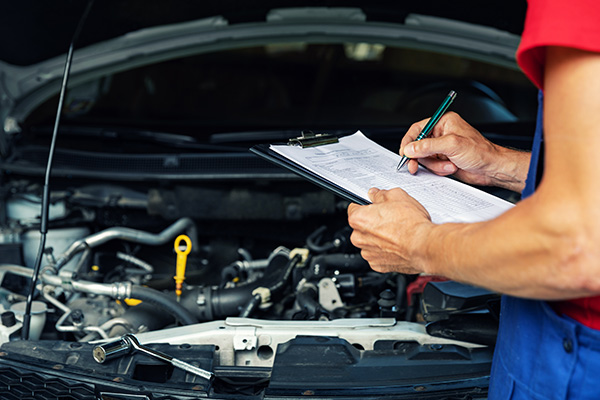
So, you've just purchased a used car. Congratulations! Buying a pre-owned vehicle is a smart way to save money, but unlike driving a new car off the lot, a used one comes with its own set of considerations. You may not know its full history, and while it might look great on the outside, there could be some hidden issues under the hood. That's why performing some essential maintenance after buying a used car is important to ensure it runs smoothly for years to come.
1. Get an Oil Change and Replace the Oil Filter
One of the simplest yet most important tasks is changing the oil and replacing the oil filter. You don't know when the last oil change was performed, and fresh oil is key to keeping the engine lubricated and running efficiently. Old oil can become dirty and thick, which puts unnecessary stress on the engine and could lead to long-term damage.
Consider replacing the oil filter along with the oil. The oil filter traps dirt and debris that can accumulate in the engine. Starting with clean oil and a new filter will help the engine perform at its best.
2. Inspect and Replace Fluids
Next up, check all the fluids. This includes coolant, brake fluid, transmission fluid, and power steering fluid. Over time, these fluids can degrade and lose their effectiveness, so it's essential to inspect them after purchasing a used car. Top them off or replace them if necessary.
Coolant plays a critical role in regulating your engine's temperature. Old coolant or low levels could cause the engine to overheat, leading to costly repairs. Transmission fluid is another vital fluid, particularly if you're driving an automatic. Neglecting the transmission fluid can result in poor shifting performance and even transmission failure.
3. Check the Brakes
When it comes to safety, nothing is more important than ensuring your brakes are in good condition. Brakes can wear out over time, and depending on how the previous owner treated the vehicle, they may need some attention. Inspect the brake pads, rotors, and brake fluid. If you hear any squeaking or feel any unusual vibrations while braking, it's time for a closer look.
Worn brake pads are a clear sign of a problem, and ignoring them could damage your rotors, leading to a more expensive repair.
4. Examine the Tires
Tires are one of the most critical components of any vehicle, affecting handling, safety, and fuel efficiency. After buying a used car, check the condition of the tires. Are they worn unevenly? Do they have enough tread left? Tire issues could indicate alignment problems, improper tire pressure, or suspension issues.
Make sure the tires are inflated to the correct pressure, and consider having the wheels aligned and balanced. If the tires are worn down, it's a good idea to replace them to ensure maximum safety and performance.
5. Replace the Air Filter
The air filter prevents dirt, dust, and debris from entering the engine. Over time, the air filter can become clogged, reducing the engine's efficiency and performance. Replacing the air filter is a quick and inexpensive maintenance task that can improve fuel efficiency and help your engine "breathe" easier.
If the previous owner neglected this part of the car's upkeep, the engine might be struggling to perform optimally. A new air filter can make a noticeable difference in how the vehicle drives.
6. Inspect the Battery
The battery is another component that can wear down over time. After buying a used car, check the battery's age and overall condition. If it's older than three or four years, it might be nearing the end of its life. You don't want to get stuck with a car that won't start, so consider replacing the battery if it shows signs of wear or is losing charge quickly.
Also, clean off any corrosion around the battery terminals to ensure a good connection.
7. Check the Timing Belt or Chain
One of the more expensive repairs you want to avoid is a timing belt or chain failure. These parts are crucial to keeping the engine's components in sync. If the timing belt or chain snaps, it could lead to severe engine damage. If your used car has a high mileage count, and you don't know when the timing belt or chain was last replaced, it's a good idea to have it inspected.
Replacing it before it fails could save you thousands of dollars in repairs.
Take the worry out of buying a used car. Visit Inmon Automotive for full vehicle inspection and maintenance services you can trust. Book your appointment today!